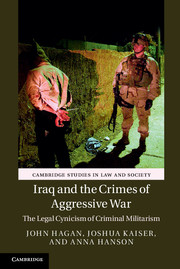6 - Legal Cynicism and Sunni Militancy
Published online by Cambridge University Press: 05 July 2015
Summary
THE END OF AN INTERLUDE
A 2012 wave of protests and government crackdowns concentrated in Sunni areas of central and northern Iraq signaled the end of a peaceful period and the outbreak of new hostilities between the Shia-dominated government of Nouri al-Maliki and a Sunni insurgency that had challenged the U.S./coalition forces from 2003 through 2008. The December 2012 protests flared in Dignity Square of Fallujah after a raid on the home and the arrest of a popular Sunni federal finance minister, Rafi al-Issawi. The protests spread rapidly across the Sunni heartland.
In April 2013, the Iraqi Army stormed a protest camp in Hawija, killing 50 people and injuring 110. In December 2013, the Iraqi Army and Police in Ramadi killed more than a dozen among hundreds of protestors against government violence. The Ramadi protest had been ongoing for a year and leaders of major Sunni tribal groups – the Jumaila, Dulaim, and Mahamda – were centrally involved. Al-Maliki alleged al-Qaeda terrorists were responsible, but tribal leaders were in charge and challenged al-Maliki by calling for his resignation. The brutal assault by the army and the police included scores of Humvees, pickup trucks, and armored vehicles. Subsequent insurgent and counterinsurgent violence escalated to the highest levels since 2008.
The renewed conflict was evidence of a resilient Arab Sunni insurgency with its roots in the U.S. invasion and occupation. Although many insurgents previously had joined the Sunni Awakening movement, Cordesman and Khazai (2014:233) now reported, some factions had realigned with al-Qaeda in Iraq while others had reestablished themselves as independent Sunni militias with few ties or loyalty to the Shia-dominated central government.
By 2013, the war in Syria had raised the stakes and complexity of the situation (Alani 2014). Long-standing cross-border ties between groups of Syrian and Iraqi Sunnis took on increased significance. Arab Sunnis in both countries were linked in their opposition to their respective Shia-dominated governments led by al-Assad and al-Maliki, with their overt and covert ties to Iran.
- Type
- Chapter
- Information
- Iraq and the Crimes of Aggressive WarThe Legal Cynicism of Criminal Militarism, pp. 161 - 191Publisher: Cambridge University PressPrint publication year: 2015

